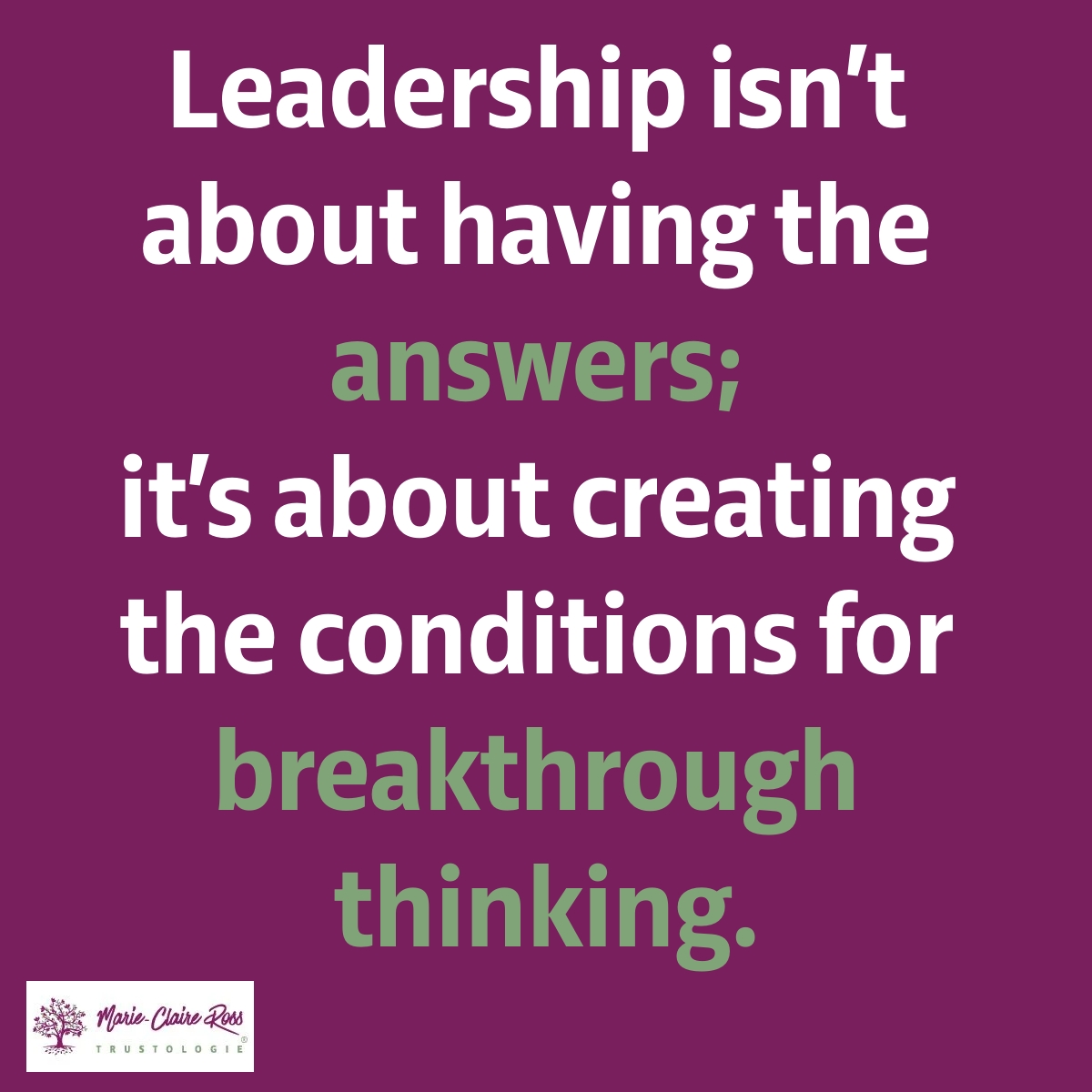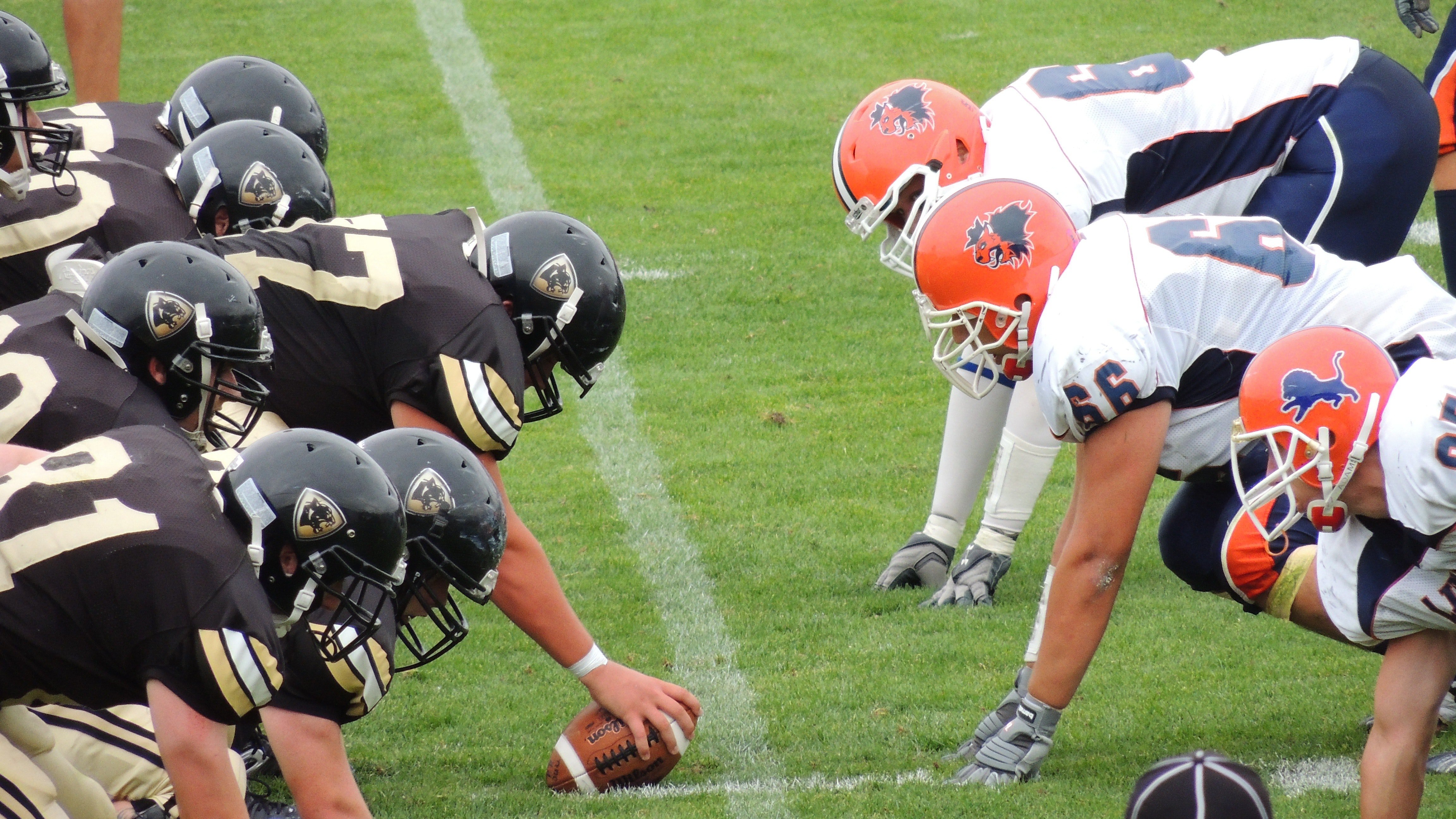8 min read
Beyond the "Why": 5 Coaching Secrets to Unlock Curiosity in Leadership
When my daughter was 17 months old, she discovered a superpower: the word “Why?”For the next two years, it was her response to almost everything.
Develop leaders, strengthen executive teams and gain deep insights with assessments designed to accelerate trust and performance.

Transform how your leaders think and perform with keynotes that spark connection, trust and high-performance cultures.

Explore practical tools, thought-leadership and resources to help you build trusted, high-performing teams.

Trustologie® is a leadership development consultancy founded by Marie-Claire Ross, specialising in helping executives and managers build high-trust, high-performing teams.

4 min read
Marie-Claire Ross : October 7, 2020

Thanks to our tribal ancestry, we see ourselves in terms of other people and groups. Evolution has taught us that it is beneficial to live in tribes, where we can share out the work of daily survival.
Today, workplace teams are the modern equivalent of tribes. But despite our inherent need to work with others, humans are pretty bad at it. While we may wish to maintain a sustainable connection to our workplace group, our competitive drive and selfish need for survival sabotages our efforts.
The stark reality is that most workplaces teams deteriorate into a group of people working independently, refusing to share important information or even ideas. At work, humans are constantly caught in the crossfire between the two opposing sides of their evolutionary heritage.
But we can’t continue like this. With rapid change and complex problems, the demand for people to work together to solve difficult issues is becoming more important than ever before. According to research by Adam Grant, published in Harvard Business Review, ‘‘the time spent by managers and employees in collaborative activities has ballooned by 50 percent or more.’’ In the last two decades alone, employees now spend about three-quarters of their day communicating with their work peers.
That’s why business schools prepare students for a changing business landscape by ensuring that their curriculums emphasise team-focused learning. Study groups are now standard learning experiences for MBA students due to the increasing business demand that future business leaders can smartly navigate group dynamics.
As Charles Duhigg, the author of The Power of Habits says, “within companies and conglomerates, as well as in government agencies and schools, teams are now the fundamental unit of organisation. If a company wants to outstrip its competitors, it needs to influence not only how people work but also how they work together.”
So it’s little wonder that high performing organisations excel at teamwork. And it pays. According to the CEB Corporate Leadership Council, engaged teams grow profits three times faster than disengaged ones. Teams that play well together are better at solving problems, innovating and finding mistakes.
In our data-obsessed world, organisations can finally get to the bottom of what makes a great team. One company that is as obsessed with measuring customer information, as it is with employee information, is Google.
Five years ago, Google was baffled as to what makes a Google team effective? Enough research had been undertaken to understand what makes a great manager, but Google felt that not enough research had pinpointed the secret sauce behind high performing teams. Google’s top brass assumed that throwing in bright people – a PhD, highly technically accomplished engineers and a couple of extroverts for balance into a group and getting them to work together was the answer. In other words, who was on the team. But they were wrong.
Four years and millions of dollars later, Google fastidiously conducted over 200 interviews with Googlers (Google employees), across 180 active teams to study the validity of an astonishing 250 attributes that affect teams. Attributes such as were the best teams made up of people with similar interests, or motivated by the same rewards or who socialised outside work hours? They even sifted through half a century of academic studies on teams. Google researchers reviewed team after team. The results were astounding. None of these commonly valued attributes was important. What Google discovered was that who is on the team doesn’t actually matter. What was critical was how the team functioned together.
In psychology and sociology, how a team functions is classified under the term “group norms.” These are the unwritten rules and behavioural standards that dictate how we behave when we get together. When Google studied all of the different behaviours exhibited in their teams – from those that debated vigorously right through to those that championed groupthink – they found that there were only two behaviours that were important for high performance.
What these two behaviours combined to produce together was the most important of all – psychological safety. The secret ingredient of high performing teams.
In teams and the workplace in general, employees need to see and feel evidence that their workplaces are safe and that their fellow co-workers are looking out for them. More importantly, workers need to trust that their boss and their colleagues really care (read more at Why Fulfilling Tribal Needs Improves Business Results).
People need psychological safety to thrive in their jobs. They want to work in an organisation where they can be themselves, speak up about any concerns and that if they make a mistake they won’t be criticised. When organisations get this right, they create an atmosphere where people know that they are liked and appreciated.
Employees then have the confidence that they can work the extra mile and their effort will be noticed. In essence, employees know they won’t be kicked out of the tribe and left to fend on their own. And this feeling of psychological safety enables employees to become more emotionally invested in the organisation they work in. It means they’re more likely to work harder and be engaged in their work.
Why feeling safe in the workplace is so important is that it is actually fundamental to our well-being. As Abraham Maslow taught in his Hierarchy of Needs, we can’t concern ourselves with higher goals until we have the necessities of life, including security.
To foster a work environment where people feel safe, it all boils down to trust. Trust is essential. Without it, social groups can’t function properly. Trust is how you connect to everyone in your workplace.
Building trust is fundamental to leadership. What Google has now introduced is a checklist for every team leader that champions acknowledging and listening others in meetings. In other words, creating a safe environment where people can be themselves, speak their truth and be vulnerable.
It’s not rocket science. But what it highlights is that the little things really do matter. Little things such as having eye contact with those speaking to show that you’re listening and seeking the opinion of a team member who has remained quiet.
Of course, the irony is that this outcome is nothing new (see Six Tips for Leaders to Build High-Performing Teams). It’s just that Google engineers used the power of data to validate what most of us really know deep down, but are too afraid or even confused to vocalise it. If we don’t trust those in a team, we shut down, stop cooperating and leave our best selves at home (see How a Fear of Speaking Up Derails Strategic Thinking).
Now, Googlers understand their feelings when they walk out of a team meeting feeling unsatisfied and have the common language and framework to discuss those emotions. In the end, while those data nerds might not have been able to express their feelings before, they’ve helped not only themselves, but the rest of the world realise the power of emotional safety and trusting your teammates.

8 min read
When my daughter was 17 months old, she discovered a superpower: the word “Why?”For the next two years, it was her response to almost everything.

11 min read
I have a friend who often finds herself at the mercy of her emotions. Recently, she called me to rehash a confrontation she’d had with a group of...

9 min read
True leadership presence isn’t a performance or a set of charisma hacks; it is the felt experience of who you are being in the room. By cultivating...

Take two teams. One has team members who are low in trust, while the other is high in trust.

Jane leads a team of 30 software programmers for a large insurance company. After months of slavishly working on a new sales tool to promote to car...

Despite what collaboration software experts would have you believe, few companies have big issues with trust within teams. When it comes to improving...